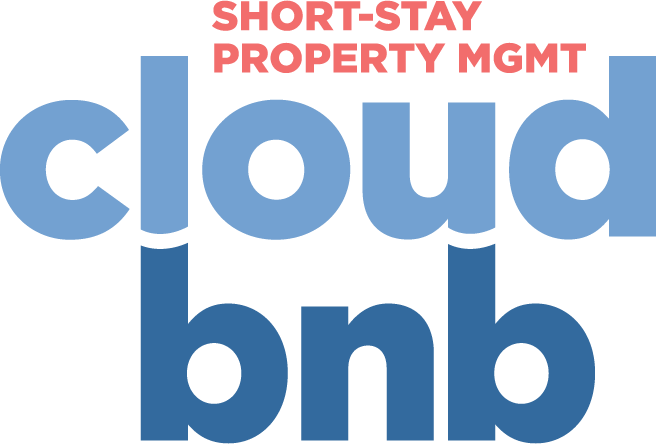There’s no arguing that Australia currently faces acute challenges with housing affordability and availability. However, the dynamics are complex, and the public consensus appears a touch misinformed, particularly when blaming our growing number of Airbnbs. Proving this point with a peer-reviewed study is independent research firm Urbis, which has concluded that the STRA (short-term rental accommodation) sector has minimal impact on Australian housing affordability.
Completed in November 2023, the Urbis report was an Australian first peer-reviewed study that identified various factors influencing and impacting housing affordability in Australia. The report found no consistent relationship between the proportion of homes used as non-hosted short-term rentals and rental affordability. Further, they concluded that short-term rentals comprised only 1% to 2% of the total housing stock across the country.
Urbis researchers used data supplied by Airbnb to examine the relationship between STRA and housing affordability comprehensively. Short-term rentals comprised only 1% to 2% of the total housing stock across the country, with, say Irbis researchers, “no consistent relationship between the proportion of homes used as non-hosted short-term rentals and vacancy rates for long-term rentals”.
Airbnb welcomes collaboration with governments on sensible regulations for our sector, and this report demonstrates it’s about getting the balance right. Short-term rentals are not the root cause of the housing crisis and adopting the right approach to ensure hosting on Airbnb and the economic activity it creates makes communities stronger.
Susan Wheeldon, Airbnb Country Manager for Australia and New Zealand
The research from Urbis supports recent findings from both the Queensland and ACT Governments which shows the impact of the short-term rental sector on housing is minimal and is far more limited than suggested by some.
We’ve long partnered with governments to support policies that protect housing and preserve the economic activity that home sharing generates. We want to continue to work with governments and communities to implement statewide rules as the most sensible way to regulate short-term rentals through initiatives, like property registration schemes, so a sustainable approach can be adopted that benefits both communities and industry.
Aussie Airbnb hosts: every day, community-loving people (also feeling the pinch)
During recent financial hardship across Australia, Airbnb property owners have often been targeted as greedy contributors to the housing affordability problem. However, the plight of the humble mortgage owners has mostly been ignored. The reality, though, is that thanks to repeated and escalating interest rates, most Aussie property owners are suffering significant financial pressure.
For most everyday homeowners looking to short-term rent their homes, greed is far from their motive.
The Urbis report found that approximately 67% of Australian hosts use platforms such as Airbnb to help combat financial pressures. Additionally, surveys of Airbnb guests and hosts across Australia completed in June and July 2023 found that approximately 30% of hosts used their STRA income to make ends meet, 23% to perform maintenance and renovations and 40% to afford the rising cost of living.
SUMMARY: Why do Aussie property owners use Airbnb?
- 67% use them to help combat financial pressures.
- 23% use them to perform maintenance and renovations
- 40% use them to afford the rising cost of living
“Our Hosts are everyday people who love their communities, support local jobs and direct their guests to local businesses during their stays. They provide a service that people love, with more than one million people staying in an Airbnb globally each night. Importantly, travel on Airbnb keeps more of the financial benefits of tourism with the people and places that make it happen. In 2022, guests on Airbnb spent over $12 billion in Australia and contributed $13.6 billion to GDP, whilst supporting over 90,000 jobs.”
– Urbis report: Short-term Rental Accomodation And Housing In Australia
Understanding the 10 key housing affordability drivers
So, if the humble Airbnb host is not to blame, what exactly is driving up housing affordability and availability nationwide right now?
When housing demand exceeds supply, house prices and rents increase. Likewise, when housing costs (labour, construction materials) increase, so do house prices. These increases do not diminish housing affordability on our own, though. What is vital is an individual’s ability to pay for housing. But this doesn’t just mean an individual’s ability to earn more money — it’s more complex than that.
The 10 critical housing affordability drivers are:
- Population growth – people need more houses
- Changing household compositions and sizes – changes in the average household size
- Interest rates – mortgages becoming more expensive
- Taxes and concessions – e.g. first home owner grant, negative gearing
- Land use planning – government systems and policies to supply houses
- New dwelling supply – new homes must be built to feed the demand
- Dwelling utilisation – that all dwellings must be sufficiently used to meet demand
- Funding availability – the ability for prospective purchasers to receive a loan
- Construction costs – increasing material and labour costs impact affordability by raising house prices and making new commercial projects less appealing, thus reducing the supply of new developments.
- Wages growth – an individual cannot purchase a new home without enough income. If wages growth is slower than the growth of housing prices, affordability worsens.
If you’d like to read more, the Urbis report on Short-term Rental Accomodation And Housing In Australia is available for viewing here.
Ready to start earning more income?
If you’re ready to generate more income from your rental, get in touch today.
Cloudbnb can maximise your earning potential and minimise the stress. Our complete short-term holiday rental management service makes getting the most from your rental property (like 14% in passive returns) without lifting a finger.
We do it all:
- Property listing management & marketing
- Check-in & customer communications
- Cleaning, laundry & maintenance – ensuring that 5-star feel every time
- Styling & photography
- Guest vetting – keeping your property safe and secure
- Property insurance






